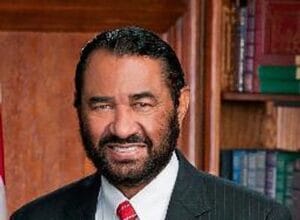On March 18, 2025, President Bola Ahmed Tinubu officially declared a state of emergency in Rivers State, responding to an ongoing political crisis. In his address to the nation, the President emphasized the need for urgent action to restore governance, law, and order in the state.
Rivers State Crisis Reaches Breaking Point
For months, Rivers State has been embroiled in political turmoil, causing a standstill in governance. President Tinubu expressed deep concern over the crisis, stating that despite several efforts by various stakeholders to mediate, no resolution had been reached. According to him, the absence of cooperation between the governor and the state assembly has hindered progress and denied citizens the benefits of democracy.
One of the key events leading to this intervention was the demolition of the Rivers State House of Assembly by Governor Siminalayi Fubara on December 13, 2023. Over a year later, the building had not been reconstructed, further worsening the legislative impasse. The Supreme Court recently ruled that the governor had engaged in unconstitutional actions, undermining the state’s governance structure.

Supreme Court Verdict and Constitutional Breaches
On February 28, 2025, the Supreme Court delivered a verdict on multiple appeals regarding the crisis in Rivers State. The court determined that the governor’s actions were unconstitutional and ruled that the dissolution of the legislature was illegal.
The judgment stated:
“A government cannot function without all three arms—executive, legislative, and judicial. In Rivers State, the governor has dismantled the legislature, effectively ruling without checks and balances. As it stands, there is no functioning government in the state.”
Additionally, the court reaffirmed that 27 lawmakers who allegedly defected from their parties remain legitimate members of the Rivers State House of Assembly. It ordered the immediate passage of an appropriation bill to restore democratic processes in the state. However, the bill remains unsigned.
Rising Security Concerns in Rivers State
Apart from the political deadlock, security in Rivers State has deteriorated in recent weeks. Reports have surfaced of militant groups vandalizing pipelines and issuing threats against individuals opposing the governor. Despite these threats, Governor Fubara has not publicly condemned or disowned these militant elements.
President Tinubu noted that recent intelligence reports indicated increased security risks, prompting urgent intervention. To ensure public safety, he has instructed security agencies to protect residents and secure vital infrastructure, including oil pipelines.
Tinubu Declares a State of Emergency
After evaluating the situation and the failure of both the governor and deputy governor to seek federal intervention, President Tinubu invoked Section 305 of the Nigerian Constitution to declare a state of emergency in Rivers State.
With immediate effect, the following actions have been taken:
- Suspension of Governor Siminalayi Fubara, Deputy Governor Ngozi Odu, and all elected lawmakers of Rivers State for six months.
- Appointment of Vice Admiral Ibokette Ibas (Rtd.) as the state administrator to oversee governance and maintain order.
- Judicial functions remain unaffected, ensuring that the courts continue to operate.
- The administrator will not create new laws but will regulate governance, with approvals from the Federal Executive Council.
President Tinubu expressed his hope that this intervention will bring stability to Rivers State and ensure the return of democratic governance.
Hope for a Peaceful Resolution
The declaration of a state of emergency in Rivers State is a major development in Nigeria’s political landscape. While some may view it as an extreme measure, the President assured the nation that this action aims to restore peace and order.
Tinubu called on all political stakeholders to respect constitutional principles and work towards rebuilding trust among Rivers State leaders. He reiterated his commitment to upholding democracy and ensuring that governance benefits the people.
This decision, now recorded in the Federal Gazette and forwarded to the National Assembly, marks a turning point for Rivers State. Citizens are hopeful that the intervention will lead to a lasting resolution and a return to normalcy.
FAQs
1. Why did President Tinubu declare a state of emergency in Rivers State?
The state of emergency was declared due to the political crisis, breakdown of governance, security threats, and constitutional breaches by the governor.
2. What does this state of emergency mean for the people of Rivers State?
It means that the governor, deputy, and lawmakers have been suspended, and an administrator will oversee governance for six months. The judiciary will continue to function normally.
3. Who is the new administrator of Rivers State?
President Tinubu appointed Vice Admiral Ibokette Ibas (Rtd.) to manage the state’s affairs during the emergency period.
4. Will this state of emergency affect daily life in Rivers State?
Essential services will continue, and security will be reinforced. However, residents can expect tighter regulations to restore order.
5. How long will the state of emergency last?
Initially, it is set for six months, but it may be reviewed based on developments in the state.
6. Can the Rivers State judiciary still operate?
Yes, courts remain functional, and legal matters will proceed as usual.
7. What are the next steps after this declaration?
The National Assembly will review the decision, and political actors will need to cooperate to restore stability. The administrator will oversee governance within constitutional limits.
8. What happens to the suspended lawmakers?
The Supreme Court ruled that 27 lawmakers remain legitimate members of the Rivers State House of Assembly, but their roles are currently suspended under the emergency directive.
This state of emergency in Rivers State represents a critical moment for Nigeria’s democracy. While uncertainty remains, the focus is on restoring governance and ensuring stability for the people of Rivers State.




